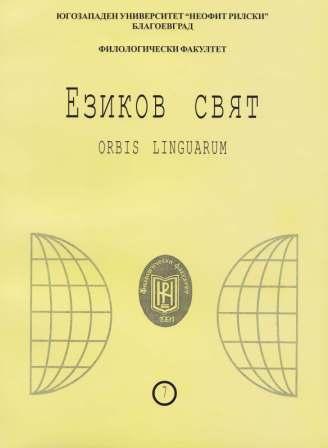THE EXPRESSIONS FOR ‘TRANSLATE’ AND ‘INTERPRET’ IN THE EUROPEAN LANGUAGES
THE EXPRESSIONS FOR ‘TRANSLATE’ AND ‘INTERPRET’ IN THE EUROPEAN LANGUAGES
Author(s): Peter M. HillSubject(s): Language and Literature Studies, Foreign languages learning, Theoretical Linguistics, Applied Linguistics, Philology, Translation Studies
Published by: ЮГОЗАПАДЕН УНИВЕРСИТЕТ »НЕОФИТ РИЛСКИ«
Keywords: historical lexicography; semantics; borrowing; calque; translate
Summary/Abstract: In the Romance languages the act of translating ‘to translate from one language into another’ is verbalized with words that originated from the mediaeval Latin trādūco (in the Classical Latin (con)vertere (vortere), reddere and interpretārī were used). The English language adopted the verb translate from the mediaeval Latin transfero distinguishing from the oral translation interpret (which is of Latin origin, probably borrowed through French) from the written translation (translate). There are calques of Latin trādūco or of Greek Μεταφέρω in the Germanic and Slavic languages. Only the Dutch language has its own word - vertalen. In several languages a number of specialized expressions can be seen, e.g., in Czech počeštit / počešt’ovat ʼtranslate into Czech‘, poněmčit ʼtranslate into German‘.
Journal: Езиков свят - Orbis Linguarum
- Issue Year: 2018
- Issue No: 1
- Page Range: 21-34
- Page Count: 14
- Language: English

